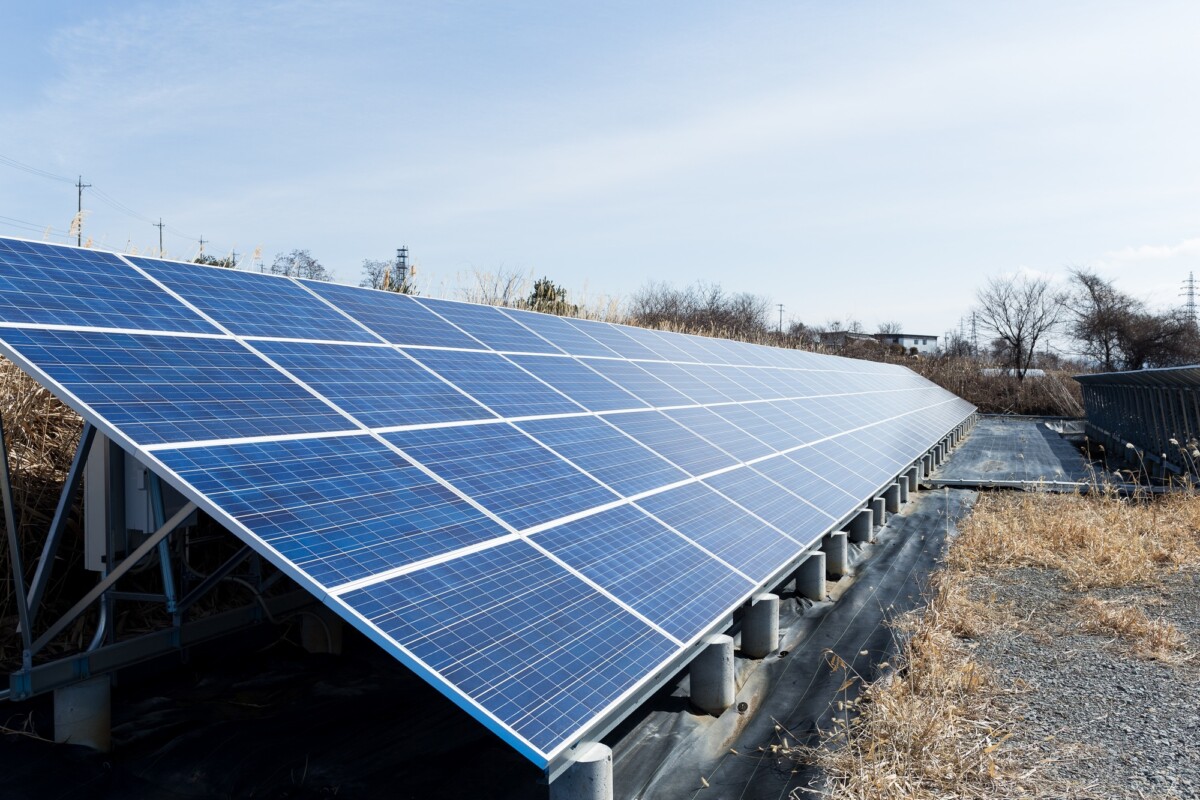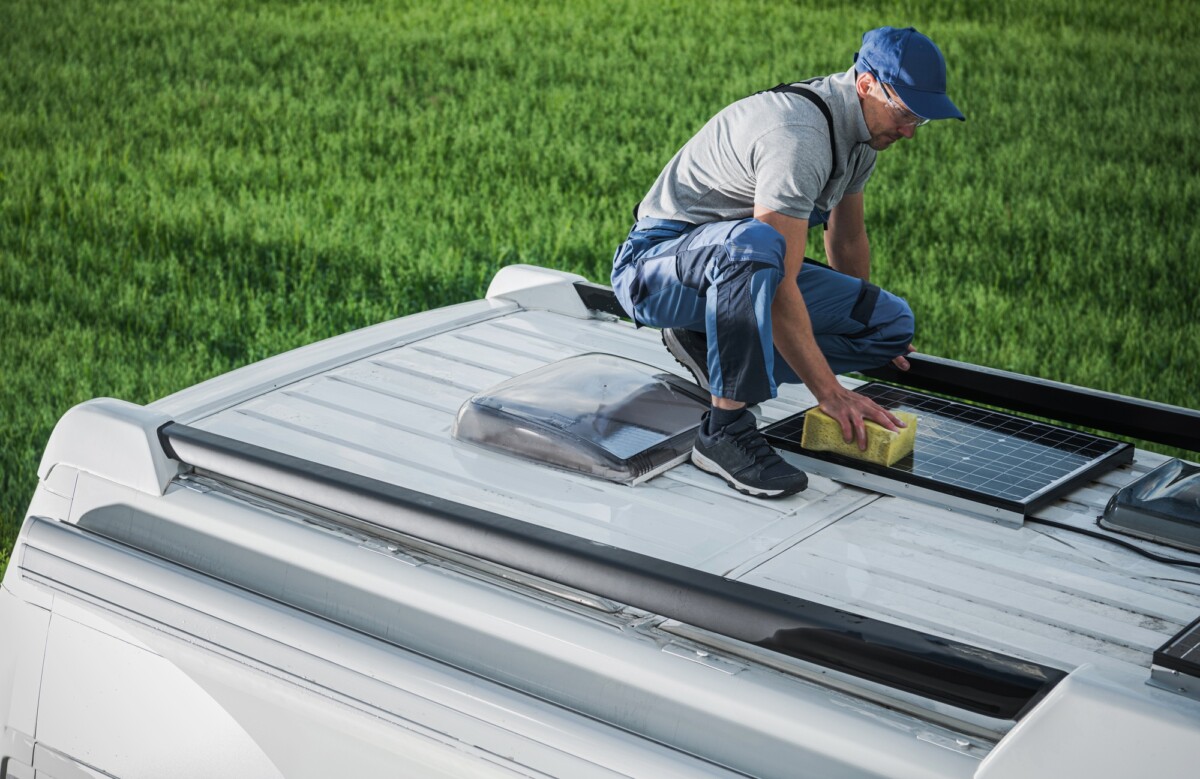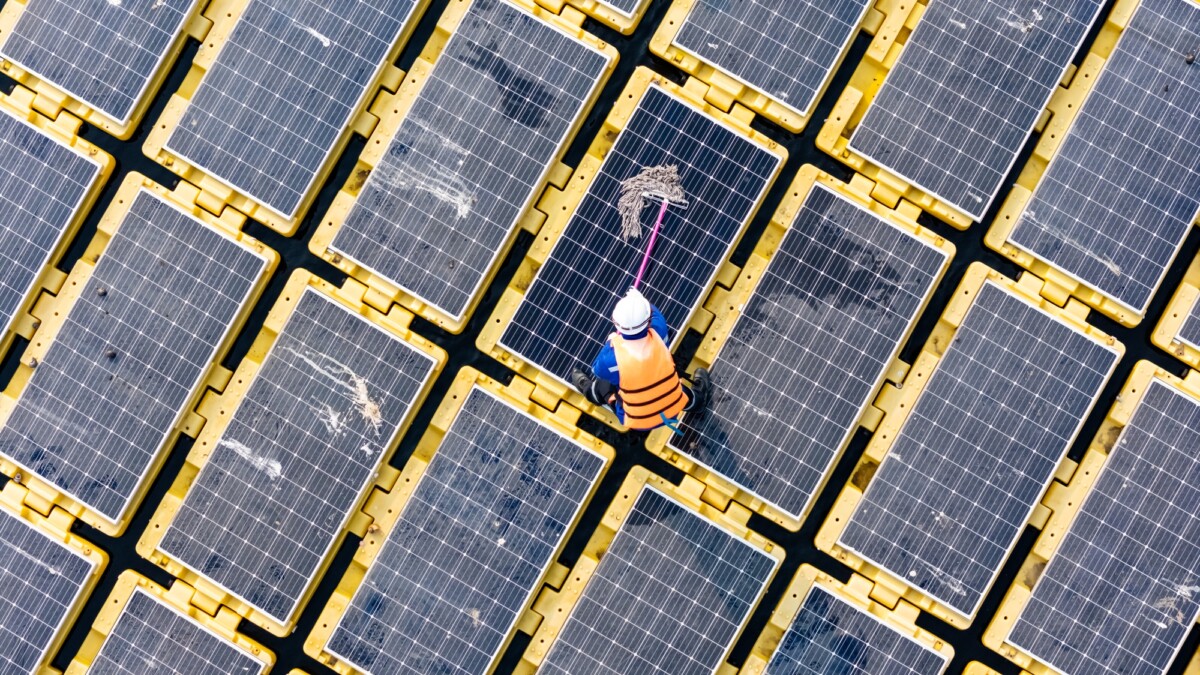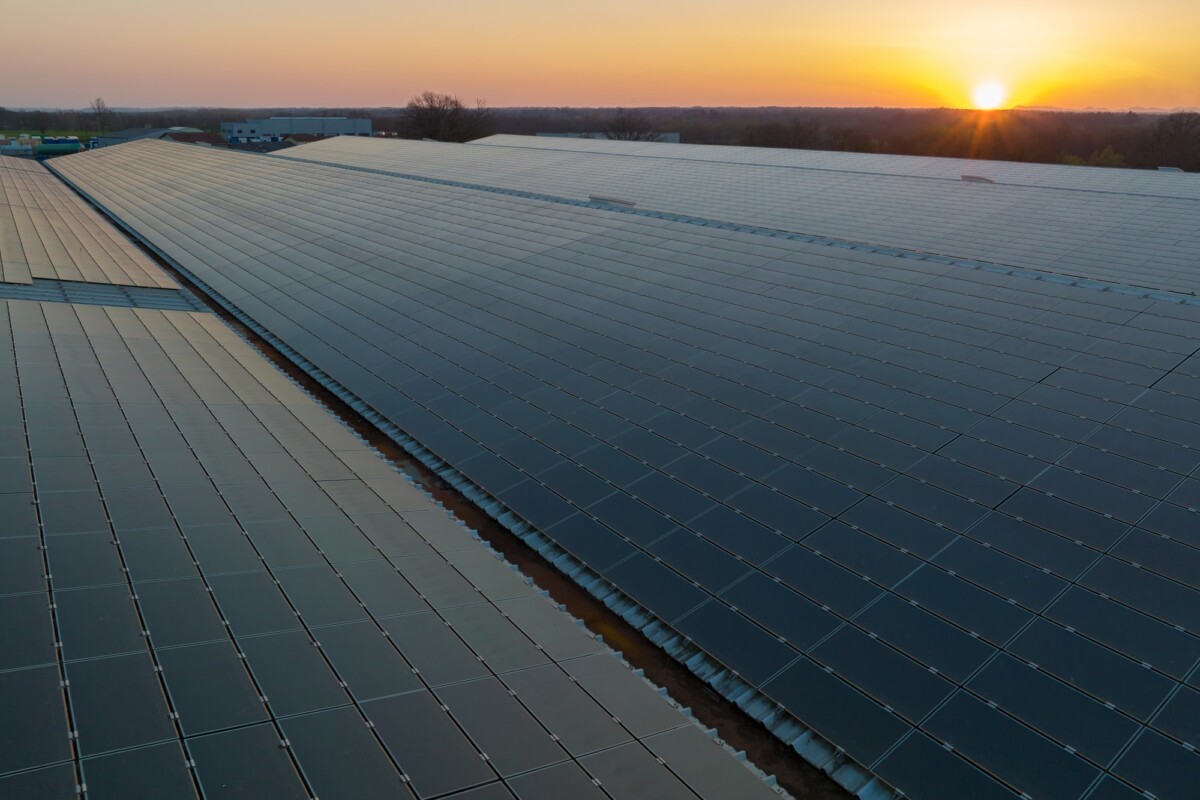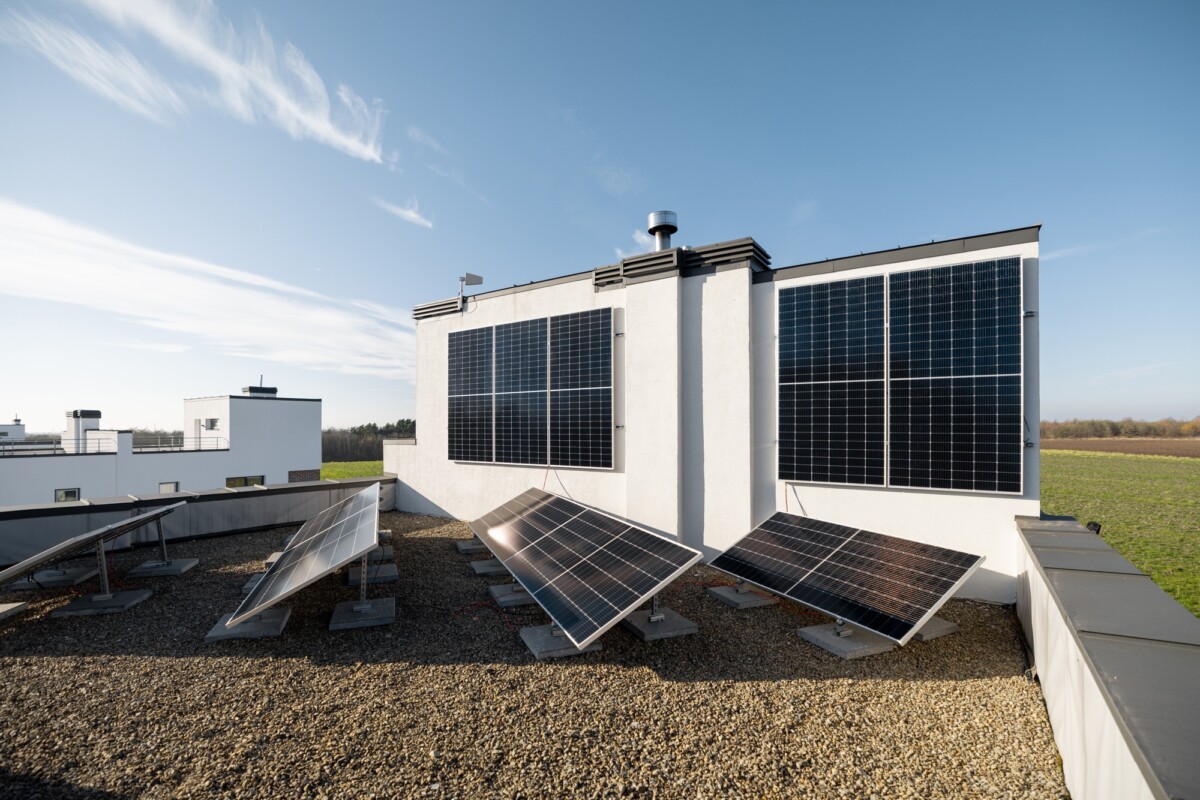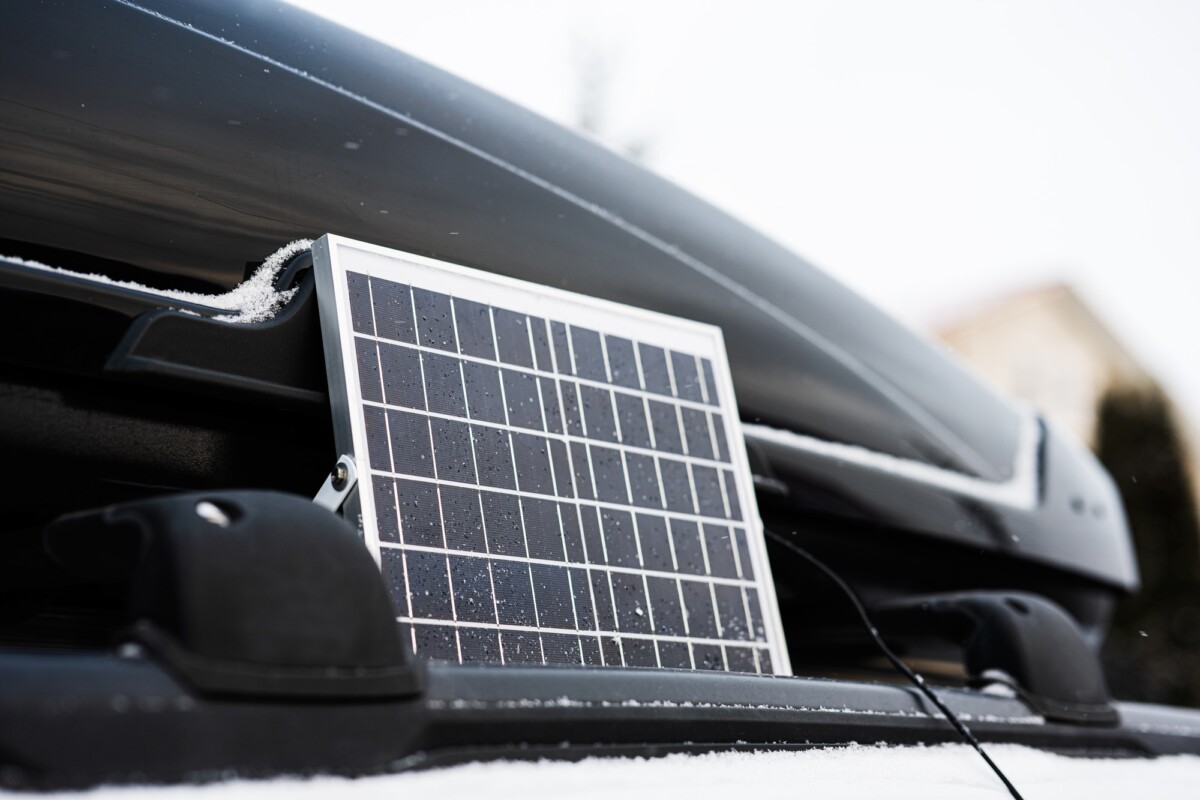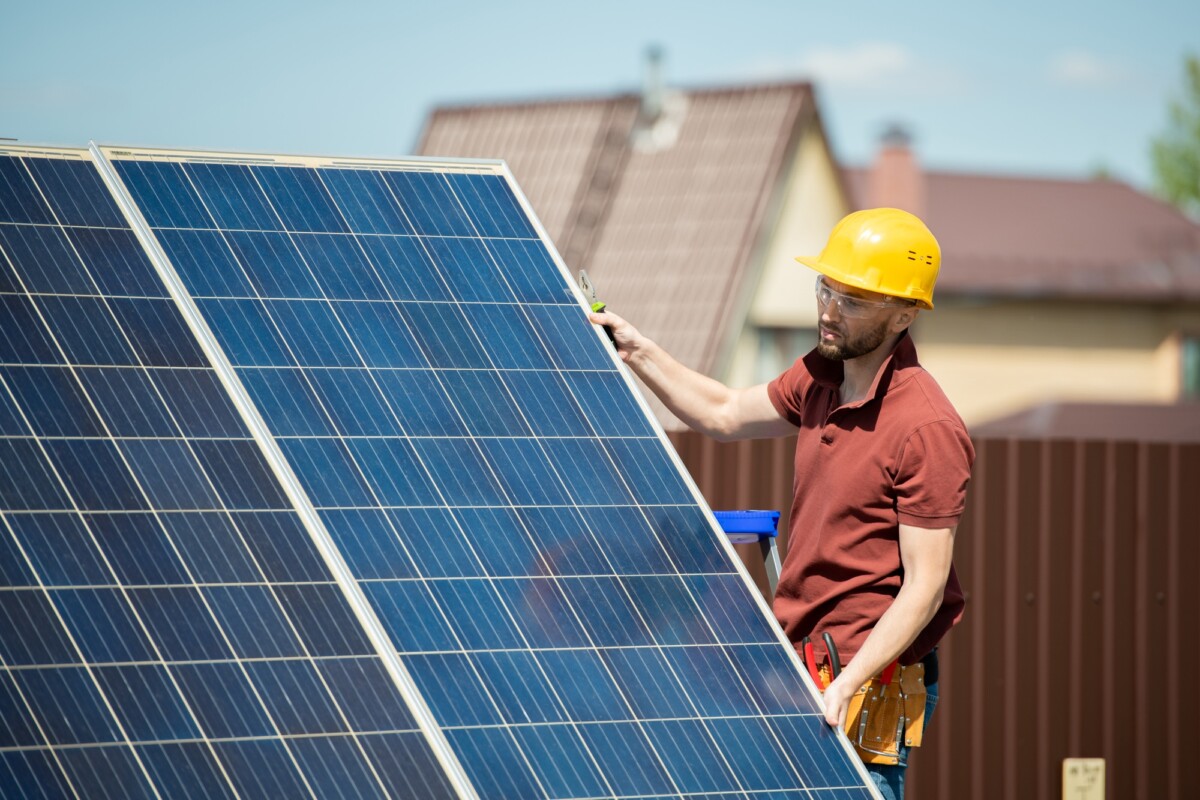Reducing our use of fossil fuels and adapting to climate change’s effects have increased the spotlight on renewable energy sources in recent years. To create their own electricity, many homeowners and companies are turning to solar panel kits because solar power is one of the most viable and easily accessible renewable energy sources.
What are Solar Panels Kits?
A solar panel kit is a package of components designed to make it easier for individuals and businesses to install their own solar panels and generate electricity from the sun. Kits typically include solar panels, an inverter, mounting hardware, and cables, as well as detailed instructions for installation.
How do solar panel kits work?
Solar panel kits convert sunlight into electricity using photovoltaic (PV) cells. The basic components of a solar panel kit include solar panels, an inverter, a charge controller, and often a set of batteries.
Here’s how it works:
- Solar panels: Solar panels, made up of photovoltaic cells, can convert sunlight into DC electricity.
- Inverter: An inverter converts DC electricity from solar panels into AC electricity for households and businesses.
- Charge controller: Charge controllers govern solar panel-to-battery electricity transfer. It prevents overcharging and discharging.
- Batteries: Some solar panel sets excess store electricity for nighttime or overcast days.
Advantages of Solar Panel Kits
There are several key benefits to using solar panel kits, including:
- Cost Savings: By installing a solar panel system yourself, you can save thousands of dollars in installation costs compared to hiring a professional.
- Increased Energy Efficiency: Solar panel kits are designed to be as efficient as possible, maximizing the amount of energy that you can generate from the sun.
- Increased Energy Independence: You can save money on monthly electricity bills by generating your own electricity.
- Reduced Environmental Impact: Solar energy is clean, renewable, and non-polluting. Solar panel kits assist in lowering your carbon impact and promote sustainable energy.
Types of Solar Panel Kits
There are several types of solar panel kits, including:
- Grid-Tied Solar Panel Kits: These kits are designed to connect to the grid, allowing you to sell excess electricity back to the utility company and receive credit on your monthly bill.
- Off-Grid Solar Panel Kits: These kits are designed to be used in remote locations or areas where access to the grid is limited. They include batteries to store excess energy for use when the sun is not shining.
- Portable Solar Panel Kits: These kits are designed to be portable and easy to transport, making them ideal for camping, boating, or other outdoor activities.
- RV Solar Panel Kits: These kits are specifically designed for use in RVs, providing a convenient and easy-to-install way to generate electricity while on the road.
- Home Solar Panel Kits: Home solar panel kits contain everything you need to install a system on your roof or yard.
Choosing the Right Solar Panel Kit
When choosing a solar panel kit, there are several key factors to consider, including:
- Location: Consider where you plan to install the panels and choose a kit designed for your climate and weather conditions.
- Energy Needs: Consider your energy needs and choose a kit that will generate enough electricity to meet those needs.
- Budget: Choose a solar panel kit that meets your budget by determining how much you’re willing to spend.
- Technical Expertise: Consider your technical expertise and choose an easy kit to install and maintain.
Top Solar Panel Kit Brands in the USA
There are several top brands in the solar panel kit market in the United States, including:
- Renogy: Renogy is a well-established brand that offers a wide range of solar panel kits for various applications, including home, RV, and off-grid use.
- Goal Zero: Goal Zero is a popular brand specializing in portable solar panel kits, offering compact and easy-to-use options for camping, boating, and other outdoor activities.
- Eco-Worthy: Eco-Worthy is a brand that offers high-quality solar panel kits at an affordable price, making them a popular choice for budget-conscious consumers.
- Grape Solar: Grape Solar is a well-regarded brand that offers complete solar panel kits, including panels, inverters, mounting hardware, and cables.
- Sunforce: Sunforce is a trusted brand that offers a range of solar panel kits, including options for home, RV, and portable use.
These are the top US solar panel kit brands. When choosing a brand, it is important to consider factors such as quality, reliability, and customer support, in addition to price and product offerings.

Installation Process
The installation process for a solar panel kit can vary depending on the specific kit you choose and the location where you plan to install it. However, in general, the process includes the following steps:
- Site Assessment: First, consider roof direction, shading, and sunshine while choosing a site for the panels.
- Equipment Selection: Based on your site assessment and energy needs, choose the right size solar panel kit and necessary components, such as inverters, mounting hardware, and cables.
- Mounting: Once you have all the necessary equipment, the next step is to mount the panels in the desired location. Depending on the kit and location, this may involve installing mounting hardware on the roof, walls, or ground.
- Wiring: After the panels are mounted, the next step is to wire them to the inverter and any necessary battery systems. This may involve running cables from the panels to the inverter and battery systems and connecting them to the appropriate electrical components.
- Connecting to the Grid: If you are installing a grid-tied solar panel kit, you will also need to connect the system to the electrical grid. This may involve obtaining permits and working with local utility companies to ensure compliance with local codes and regulations.
- Testing: After installation is complete, the final step is to test the system and ensure that it is functioning properly. This may involve checking for proper voltage, amperage, and overall performance.
Maintenance and Upkeep of Solar Panel Kits
Maintaining and upkeep solar panel kits are crucial for ensuring their longevity and performance. Proper maintenance can also help prevent potential issues and keep your system running efficiently. Here are some key maintenance tasks for solar panel kits:
- Cleaning: Dust, dirt, and grime can build up on the surface of solar panels over time, reducing their efficiency and effectiveness. Regular cleaning with water and mild soap can help keep your panels operating at peak performance.
- Monitoring Performance: Regular monitoring of your solar panel system can help you detect any potential issues early on. This may include monitoring the voltage, amperage, and overall performance of your panels and battery systems and checking for any signs of damage or degradation.
- Battery Maintenance: If you have a battery-based solar panel system, proper battery maintenance is crucial for ensuring its longevity and performance. This may include regularly checking the battery’s charge level, ensuring it is properly ventilated, and replacing it when necessary.
- Inspection: Regular inspections of your solar panel kit can help you detect potential issues and repair them as needed. This may involve checking the panels for signs of damage, such as cracks or dents, and inspecting the wiring and mounting hardware for any signs of wear or corrosion.
- Upgrades: Over time, you may want to upgrade your solar panel kit to take advantage of new technology or to increase its performance. This may involve adding new panels, upgrading the inverter or battery system, or making other modifications to the system.
Bottom Line
Solar panel kits provide a convenient and cost-effective way for individuals and businesses to generate their own electricity from the sun. With a wide range of options available, it is possible to find a kit that meets your energy needs, budget, and technical expertise. Whether you are looking to reduce your monthly electricity bills, increase your energy independence, or reduce your environmental impact, a solar panel
FAQS
What is a solar panel kit?
A solar panel kit is a packaged set of components needed to assemble a functioning photovoltaic system, typically including solar panels, an inverter, mounting hardware, and wiring.
What are the different types of solar panel kits?
The main types of solar panel kits are grid-tied, off-grid, and portable.
Are solar panel kits easy to install?
The ease of installation can vary depending on the complexity of the system and the individual’s level of expertise. Many kits come with instructions, and some may require professional installation.
How do I choose the right solar panel kit?
The right kit depends on various factors such as energy needs, location, climate, panel quality, inverter type, installation costs, and maintenance requirements.
What are some top solar panel kit brands?
Some top brands include Renogy, Grape Solar, ACOPOWER, HQST, and ALLPOWERS.
Is maintenance required for solar panel kits?
Yes, maintenance is required to keep the system functioning properly, including cleaning the panels, checking the battery and inverter, monitoring energy production, and updating the system as needed.
Are there any government incentives for solar panel kits?
Yes, many countries offer financial incentives, tax credits, and rebates for homeowners who install solar panels. Check local government programs for more information.
What are home solar kits?
Home solar kits are pre-packaged systems designed for residential use that typically include solar panels, inverters, mounting hardware, and other necessary components for a complete solar power system.
What is a solar panel kit for a home?
A solar panel kit for home is a pre-packaged system designed specifically for residential use. It typically includes solar panels, an inverter, mounting hardware, and other necessary components for a complete solar power system.
Where can I shop for solar kits?
Solar kits can be purchased from various retailers, including home improvement stores, online retailers, and specialty solar companies. It’s important to research and compare products and prices from different sources before purchasing.
Can I use a solar panel kit for a shed?
Yes, a solar panel kit can be used to power a shed. However, the size of the kit will depend on the energy needs of the shed and the amount of sunlight it receives. Conducting a site assessment and determining the right size kit for your specific needs is important.
What is a solar system kit?
A solar system kit is a pre-packaged set of components designed for use in a solar power system. This typically includes solar panels, an inverter, mounting hardware, and other necessary components.
What is included in a solar system kit?
A solar system kit typically includes solar panels, an inverter, mounting hardware, and other necessary components for a complete solar power system, such as cables and batteries (if included). The exact components will depend on the specific kit you choose.
What are complete solar power kits for homes?
Complete solar power kits for homes are pre-packaged systems designed specifically for residential use. They typically include all the necessary components for a complete solar power system, including solar panels, an inverter, mounting hardware, and any other necessary components.
Are there solar kits with batteries included?
Yes, there are solar kits that include batteries. These kits are designed for use in off-grid or backup power systems and typically include a battery system, solar panels, an inverter, and other necessary components. It’s important to research and compare products and prices to determine the right kit for your needs.


